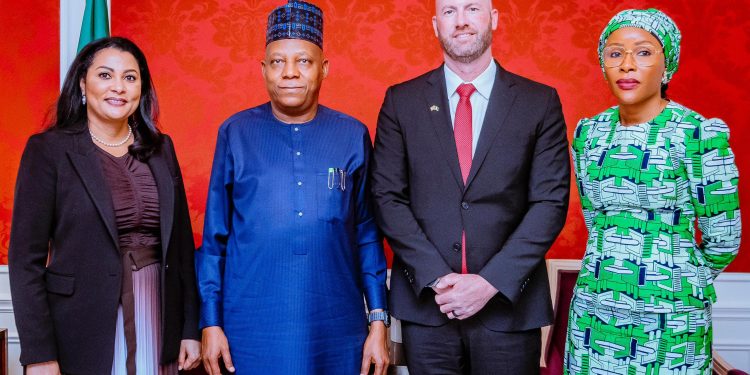ExxonMobil is set to invest $10 billion in deep-water oil projects in Nigeria, Africa’s largest oil-producing country, with an expected output of at least 180,000 barrels per day (bpd). This marks a shift in the company’s focus, moving away from onshore operations to explore the deep waters of the Niger Delta.
The American oil giant, which has exited Nigeria’s onshore environment, now centers its strategy on the Owowo deep-water asset. Drilled by ExxonMobil’s affiliate, Esso Exploration and Production Nigeria Limited, the Owowo project was discovered in October 2016 and is estimated to hold between 500 million and 1 billion barrels of recoverable oil. The $10 billion investment is anticipated to unlock significant production potential from this asset.
In recent public statements, ExxonMobil executives in Nigeria emphasized their commitment to deep-water exploration. “Our commitment to Nigeria remains unwavering. As we celebrate 70 years of oil production and 8 billion barrels produced, we’re not retreating but refocusing our investments on deep-water opportunities,” said Shane Harris, Chairman and Managing Director of ExxonMobil affiliates in Nigeria. Harris also noted ongoing discussions with the Nigerian government to secure favorable fiscal terms for the Owowo project.
ExxonMobil has made strides in preparing for the next phase of its deep-water operations. In August 2023, the company issued tenders for rigs to handle drilling, completion, testing, and workovers in water depths of 600 to 1,800 meters, focusing on the Owowo field in OML 139 and OML 154. The rig tender, which closed in early September, has a three-year term with an option for an additional two years. Another tender for oil country tubular goods (OCTG) also closed in August, with similar contract durations.
The Owowo field had been previously shelved but was revived thanks to the Petroleum Industry Act (PIA) and changes to Nigeria’s production-sharing framework. According to Bala Wunti, Group General Manager of Nigerian Upstream Investment Services (NUIS), ExxonMobil’s renewed focus on Owowo is a result of these regulatory improvements. The PIA has notably increased Owowo’s net present value (NPV) by more than 200%, reaching over $3.5 billion, as highlighted by a 2022 report from S&P Global.
ExxonMobil holds a 27% operating stake in the Owowo project, alongside joint venture partners Chevron Nigeria Deepwater G Limited (27%), Total E&P Nigeria Limited (18%), Nexen Petroleum Deepwater Nigeria Limited (18%), and the Nigeria Petroleum Development Company Limited (10%).
Energy experts see the revived Owowo project as a positive development for Nigeria’s oil sector. Obo Idornigie, Vice President at energy intelligence firm Welligence, expressed optimism, noting that partners are planning to tie the Owowo field to the underutilized Usan FPSO. He cautioned, however, that other projects like Bonga SW and Preowei have faced delays in the past, but hopes Owowo will avoid similar setbacks.
This investment comes at a crucial time for ExxonMobil, as the company’s Nigerian oil production has steadily declined in recent years, dropping from 150,000 bpd in 2020 to 123,000 bpd by 2023. The Owowo project is expected to help reverse this trend and reinforce ExxonMobil’s position in Nigeria’s oil sector.
In June, the company appointed Shane Harris as the new chairman and managing director in Nigeria, further underscoring its commitment to the country. Liam Mallon, President of ExxonMobil Upstream Company, also met with Nigerian President Bola Tinubu shortly after he took office in May, signaling a strong relationship between the company and the Nigerian government.
Onshore Divestments
While ExxonMobil focuses on deep-water ventures, the company is in the process of divesting its onshore assets. In a $1.2 billion deal with Seplat Energy, ExxonMobil plans to sell its Nigerian onshore assets, a transaction awaiting approval from the government. President Bola Tinubu has been involved in resolving outstanding issues regarding the deal.
Similarly, other major oil companies are following suit. Shell Plc reached an agreement to sell its Nigerian onshore oil assets for over $1.3 billion, and TotalEnergies has announced plans to offload its minority stake in a significant Nigerian onshore joint venture.
As ExxonMobil transitions to deep-water projects and exits onshore operations, Nigeria’s oil industry is entering a new era of exploration and investment, with the potential to increase oil output and attract further international interest.










